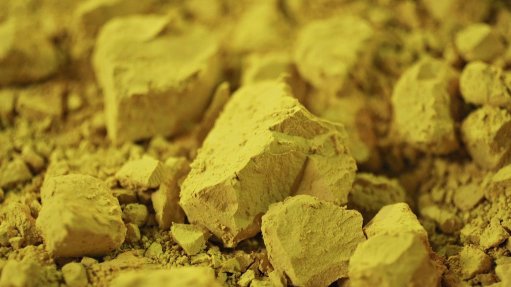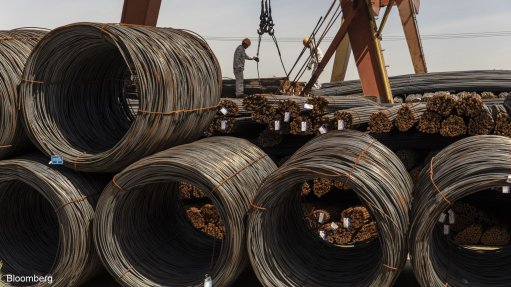Zimbabwe: A new focus for lithium mining



Clinton Pavlovic, Senior Associate at Hogan Lovells
Tapiwa John Chivanga, Senior Associate at Scanlen & Holderness
This article has been supplied.
By Clinton Pavlovic, Senior Associate at Hogan Lovells & Tapiwa John Chivanga, Senior Associate at Scanlen & Holderness
Lithium is becoming a highly sought-after commodity in the drive to achieve a net-zero global economy. The International Monetary Fund (IMF) has warned that by 2030 the global economy will have to have reduced its greenhouse gas emissions by at least 25% in order to meet the goal set in the 2015 Paris Climate Accords to limit the global temperature increase to 1.5°C. One way of achieving this goal is by taking steps to reduce global carbon dioxide (CO2) emissions to net-zero by 2050.
As the global economy transitions towards a net-zero scenario, the demand for raw minerals which are vital to many clean energy technologies will increase. These minerals include lithium, copper and nickel. The International Energy Agency estimates that by 2040 the global demand for these vital minerals may exceed the current demand for coal.
Today, the production and processing operations for lithium are concentrated mainly in Australia, Chile, and Brazil. Efforts to increase lithium production have now placed a new focus on Zimbabwe, which has the largest lithium reserve in Africa and the sixth largest lithium reserve in the world. Zimbabwe is also estimated to have the highest number of lithium projects under exploration on the African continent.
Some notable lithium projects over the past two years in Zimbabwe include: the US$422m deal where Zhejiang Huayou (world’s biggest producer of cobalt) acquired controlling rights to Zimbabwe’s Arcadia mine [Prospect Lithium (Pvt) Ltd]; the Premier African Minerals Limited joint venture agreement with Li3 Resources Inc to acquire a 50% interest in Premier’s lithium assets located in Mutare; the acquisition of a 100% stake in African Metals Management Services and Southern African Metals and Minerals by Hong Kong's Sinomine for US$180m (Bikita Lithium Mine); and, more recently, the potential acquisition of a Zimbabwean lithium mine between China Natural Resources Inc, Feishang Group Limited and Top Pacific (China) Limited valued at approximately US$1.75bn. (This deal had not been completed at the time of publishing.)
Lithium mining in Zimbabwe
According to the World Economic Forum, 540 000 metric tonnes of lithium were mined globally in 2021. This is expected to increase to 1.5m metric tonnes and 3m metric tonnes by 2025 and 2030 respectively. These numbers pale in comparison to the approximately 10m metric tonnes of untapped lithium resources that are believed to be present at the Bikita lithium project. Experts estimate that 20% of the world’s lithium demand can be met by Zimbabwe if it fully exploits its reserves.
Inevitably, these statistics have drawn global interest. With the world moving towards more projects and activities that require lithium, investors have moved swiftly into the lithium extraction business in Zimbabwe, the most significant strides being made by Chinese investors.
It is no surprise that Chinese investors have moved quickly into acquiring mining entities and claims and have entered into joint venture agreements with local and government entities for the sole purpose of exploiting lithium. At the time of writing, it is estimated that in the past three years at least US$10bn have been and are scheduled to be invested in the various lithium projects mentioned above.
Navigating investing in Zimbabwe
When setting up an initial investment in Zimbabwe’s lithium space, some of the key pieces of legislation a foreign investor may consider include:
Zimbabwe Investment and Development Agency Act (Chapter 14:37) – enacted to, amongst other things, reduce the bureaucracy in setting up companies for foreign investors. It achieves this objective via the Zimbabwe Investment Development Agency (ZIDA), set up to promote and facilitate foreign direct investment, and its board, which oversees a One-Stop-Shop-Investment Services Centre for investors. The Centre is already accelerating the pace of completion of M&A transactions as it houses most of the regulatory authorities required for these transactions.
Mines and Minerals Act (Chapter 21:05) – which consolidates the laws relating to mines and minerals, including the acquisition of mineral rights and other ancillary issues thereto.
Exchange Control Act (Chapter 22:05) – which confers powers and imposes duties and restrictions in relation to gold, currency, securities, exchange transactions, payments and debts, and the import, export, transfer and settlement of property, and for connected purposes.
Indigenisation and Economic Empowerment Act (Chapter 14:33) – which provides for the indigenisation of businesses, reservation of certain economic sectors, approval of merger transactions, demerger transactions, acquisition transactions and relinquishment transactions by the Minister of Industry and Commerce.
Companies and Other Business Entities Act (Chapter 24:31) – which provides for the constitution, incorporation, registration, management and internal administration of companies and the regulation of incidental matters and aligns Zimbabwean company law with international best practice and regulates mergers and takeovers.
Competition Act (Chapter 14:28) – which promotes and maintains competition in the economy of Zimbabwe and establishes the Industry and Trade Competition Commission. It also provides for the prevention and control of restrictive practices, the regulation of mergers, the prevention and control of monopoly situations and the prohibition of unfair trade practices, and provides for connected and incidental matters; and
Environmental Management Act (Chapter 20:27) – enacted for the provision of the sustainable management of natural resources and the protection of the environment, the prevention of pollution and environmental degradation, amongst others.
Equally crucial when setting up one’s investment are the regulatory authorities, which are empowered to enforce the above-mentioned legislation. These include the Zimbabwean Investment and Development Agency, Reserve Bank of Zimbabwe, Ministry of Industry and Commerce, Competition and Tariff Commission, the Environmental Management Agency, and the Zimbabwe Revenue Authority.
The most significant recent development in the lithium mining space has been the ban on the export of unprocessed lithium enacted by the Zimbabwean government in December 2022. This ban came by way of Statutory Instrument 213 of 2022, otherwise known as the Base Minerals Export Control (Lithium Bearing Ores and Unbeneficiated Lithium) Order, 2022.
In terms of the regulations, no lithium bearing ores, or unbeneficiated lithium whatsoever, shall be exported from Zimbabwe to another country except with a written permit from the Minister of Mines and Minerals. The government hopes that the ban will, in the long term, unlock more benefits from lithium extraction in the nation through value addition, as it may trigger the relocation to, and setting up of processing firms in Zimbabwe, especially in the manufacturing space.
In light of all this, the lithium extraction business and ancillary businesses in Zimbabwe, and Africa as a whole, are certainly future prospects for any foreign investor to consider. We expect a continued interest in the mining industry, not only in Zimbabwe, but also across the African continent. It is worth noting that Zimbabwe is also home to other minerals critical to developing EV batteries, including cobalt, manganese, nickel, and graphite.
Article Enquiry
Email Article
Save Article
Feedback
To advertise email advertising@creamermedia.co.za or click here
Press Office
Announcements
What's On
Subscribe to improve your user experience...
Option 1 (equivalent of R125 a month):
Receive a weekly copy of Creamer Media's Engineering News & Mining Weekly magazine
(print copy for those in South Africa and e-magazine for those outside of South Africa)
Receive daily email newsletters
Access to full search results
Access archive of magazine back copies
Access to Projects in Progress
Access to ONE Research Report of your choice in PDF format
Option 2 (equivalent of R375 a month):
All benefits from Option 1
PLUS
Access to Creamer Media's Research Channel Africa for ALL Research Reports, in PDF format, on various industrial and mining sectors
including Electricity; Water; Energy Transition; Hydrogen; Roads, Rail and Ports; Coal; Gold; Platinum; Battery Metals; etc.
Already a subscriber?
Forgotten your password?
Receive weekly copy of Creamer Media's Engineering News & Mining Weekly magazine (print copy for those in South Africa and e-magazine for those outside of South Africa)
➕
Recieve daily email newsletters
➕
Access to full search results
➕
Access archive of magazine back copies
➕
Access to Projects in Progress
➕
Access to ONE Research Report of your choice in PDF format
RESEARCH CHANNEL AFRICA
R4500 (equivalent of R375 a month)
SUBSCRIBEAll benefits from Option 1
➕
Access to Creamer Media's Research Channel Africa for ALL Research Reports on various industrial and mining sectors, in PDF format, including on:
Electricity
➕
Water
➕
Energy Transition
➕
Hydrogen
➕
Roads, Rail and Ports
➕
Coal
➕
Gold
➕
Platinum
➕
Battery Metals
➕
etc.
Receive all benefits from Option 1 or Option 2 delivered to numerous people at your company
➕
Multiple User names and Passwords for simultaneous log-ins
➕
Intranet integration access to all in your organisation




















